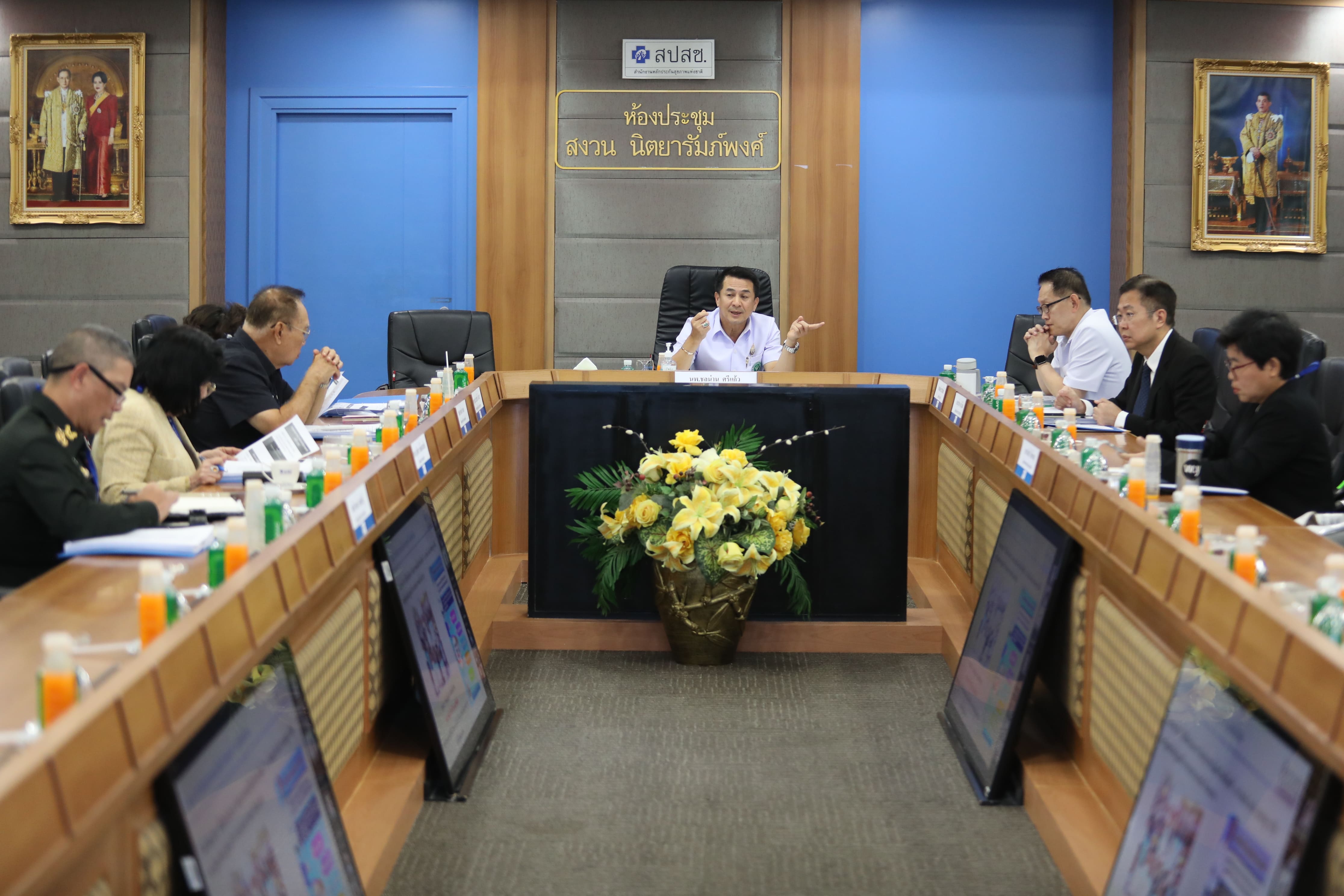
- Home
- DescriptionNews
Mammography and ultrasound breast cancer screening to be accessible for Thai women with high-risk

Mammography and ultrasound breast cancer screening to be accessible for Thai women with high-risk
The National Health Security Board (NHSB) has approved the inclusion of breast cancer screening with Mammography and ultrasound for all Thai women aged 40 and above who have direct relatives with a history of breast cancer to its Benefit Package.
This aims to provide early treatment for newly diagnosed patients and reduce mortality from breast cancer.
The new health benefit was approved on 18 January during the board committee meeting chaired by the Minister of Public Health and Chairman of the NHSB, Dr Cholnan Srikaew.
Its proposal was presented by Assoc Prof Prasobsri Ungtavorn, chair of the Benefit Package Subcommittee, and Mrs Waraporn Suwanwela, the NHSO Deputy Secretary-General.
.jpg)
Dr Cholnan stated that breast cancer is considered a significant health threat to all women and requires effective and accessible screening to prevent risk groups from developing cancer.
The annual incidence of breast cancer in Thailand is 37.8 per 100,000 population, with 22,158 new cases reported in 2020, accounting for 22.8% of all female cancer cases.
The mortality rate from breast cancer is 12.7 per 100,000 population, with 8,266 deaths reported in 2020, representing 14.6% of all female cancer-related deaths.
In response to this health risk, The NHSO emphasizes a policy that focuses on screening, especially for women with a hign risk of breast cancer, leading to the approval of including breast cancer screening using mammography and ultrasound in the UCS’s benefits package.
This benefit will be offered to women aged 40 and above with a family history of breast cancer. They can request the test once a year. The target for screening services is set at 40,600 cases this year.
" This benefit will support the government's comprehensive cancer care policy, which aims to care of cancer patients and those with risk, providing necessary services without financial barriers," said Dr Cholnan.
(1).jpg)
NHSO Secretary-General Dr Jadej Thammatacharee mentioned that the approval of Mammography and ultrasound breast cancer screening for high-risk groups based on study results on the development of the benefits package for breast cancer screening and proposal from the Ministry of Public Health's cancer service plan indicated that treating breast cancer patients at the early stages will increase patients' survival rate.
Early treatment for first-stage breast cancer patients provided a 94.40% survival rate, the second stage at 85%, the third stage at 56.60%, and the fourth stage at 28.30%, respectively.
Early-stage treatment also leads to positive outcomes, a low chance of complications, and the achievement of breast surgeries.
Dr Jadej also added that the decision to offer breast cancer screening to women aged 40 and older stems from medical recommendations.
For those with direct relatives diagnosed with breast cancer, it's advised to begin screening ten years earlier than the age at which the relative was diagnosed.
In Thailand, breast cancer is most prevalent among women aged 50 to 59. In addition, for the high-risk group, annual screening is recommended.
As for the budget, the NHSO board allocates 87.36 million Thai baht to support the new health benefit.
The NHSO will coordinate with the Health Systems Research Institute and the Ministry of Public Health to carry out the plan.
There will be a mechanism for collecting and monitoring comprehensive data to support future expansion of the screening.
"The breast cancer screening with mammography and ultrasound will be additional to the UCS existing benefits, which include guiding breast self-examination for women aged between 25 and 59," he added.
“Another benefit is testing for the BRCA1/BRCA2 gene mutation for breast cancer patients aged 18 and above and their direct relativesfor breast cancer prevention.”

